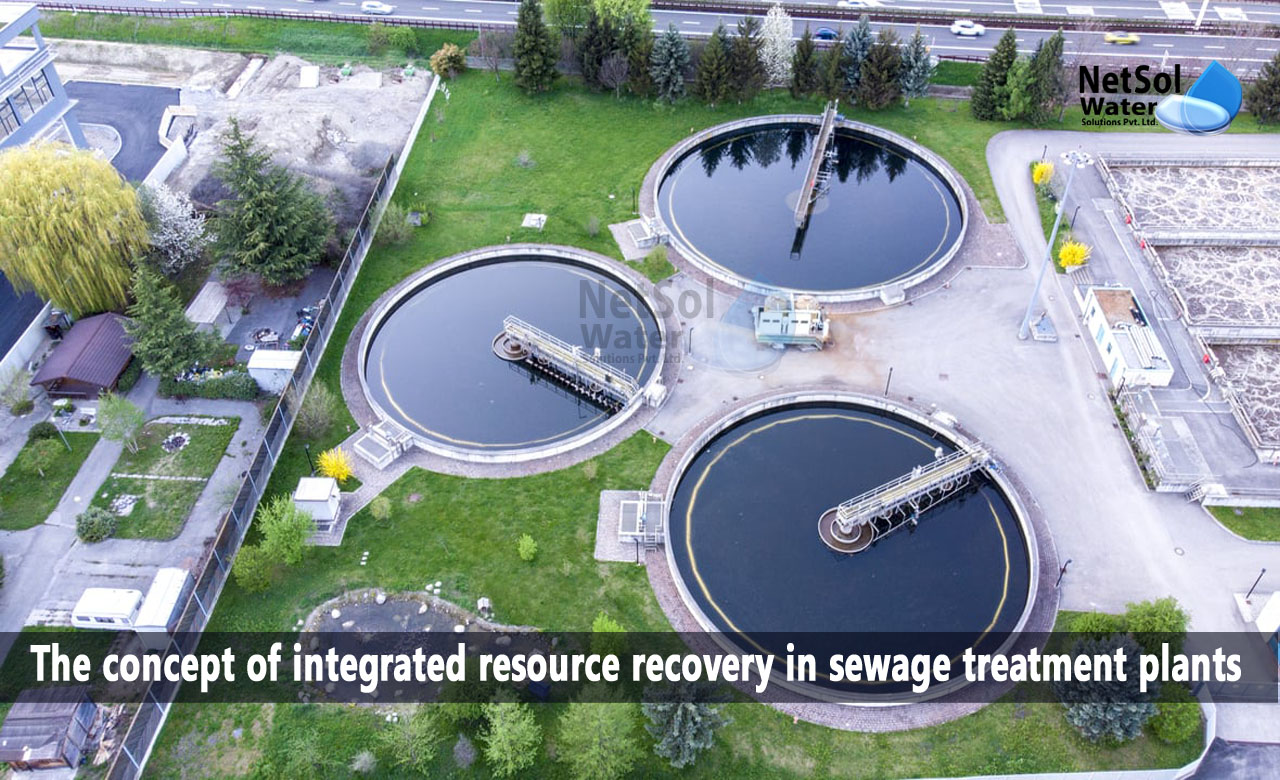The concept of integrated resource recovery in sewage treatment plants
Sewage treatment plants play a crucial role in treating wastewater and safeguarding public health and the environment. However, these facilities have the potential to be more than just waste treatment centers. With the implementation of integrated resource recovery approaches, sewage treatment plants can transform waste streams into valuable resources.
In this blog, we will explore the concept of integrated resource recovery in sewage treatment plants and how it allows us to extract value from what was once considered waste.
Understanding Integrated Resource Recovery: Integrated resource recovery is a sustainable approach that aims to maximize the utilization of resources present in waste streams. Instead of viewing wastewater solely as a waste product, this approach recognizes it as a potential source of energy, nutrients, and other valuable materials. By integrating resource recovery processes into sewage treatment plants, we can reduce waste generation, conserve resources, and create a more circular and sustainable economy.
Key Components of Integrated Resource Recovery:
- Energy Recovery: Sewage treatment plants generate significant amounts of organic matter, which can be converted into biogas through anaerobic digestion. This biogas, rich in methane, can be utilized to produce heat and electricity, reducing the plant's reliance on external energy sources.
- Nutrient Recovery: Wastewater contains valuable nutrients like nitrogen and phosphorus, which can be recovered and repurposed as fertilizers. Technologies such as struvite precipitation and biological nutrient removal enable the extraction and conversion of these nutrients into a usable form, reducing the need for synthetic fertilizers.
- Water Reuse: Treated wastewater can be reclaimed and reused for various non-potable purposes, such as irrigation, industrial processes, and toilet flushing. By implementing proper treatment processes like advanced filtration and disinfection, sewage treatment plants can ensure the quality of reclaimed water, reducing the demand for freshwater resources.
- Bioproducts and Biochemicals: Through innovative technologies, sewage treatment plants can extract bioproducts and biochemicals from wastewater. These can include bio-based chemicals, bioplastics, and other materials that can find applications in various industries, fostering a more sustainable and circular economy.
Benefits of Integrated Resource Recovery:
- Resource Conservation: Integrated resource recovery maximizes the use of resources present in wastewater, reducing the need for virgin resources and minimizing the environmental impact associated with their extraction and production.
- Energy Independence: By recovering energy from organic matter in wastewater, sewage treatment plants can become self-sufficient in meeting their energy needs, reducing reliance on external sources and mitigating carbon emissions.
- Cost Savings: Integrated resource recovery can lead to cost savings through reduced energy consumption, lower waste disposal costs, and the creation of revenue streams from the sale of recovered resources.
- Environmental Protection: By minimizing waste generation and promoting resource reuse, integrated resource recovery contributes to environmental protection, reducing pollution and conserving natural resources.
Challenges and Considerations:
Implementing integrated resource recovery in sewage treatment plants comes with its own set of challenges:
- Technology and Infrastructure: Adopting resource recovery technologies may require infrastructure upgrades and investments in advanced treatment processes, which can pose financial and operational challenges.
- Regulatory Frameworks: Regulatory frameworks and standards may need to be adapted to encourage and support resource recovery practices, ensuring the safety and quality of recovered resources.
- Public Perception and Acceptance: Public awareness and acceptance of the recovered resources, such as reclaimed water or bio-based products, may require education and engagement to overcome any perceived concerns or misconceptions.
- Collaboration and Knowledge Exchange: Successful implementation of integrated resource recovery requires collaboration between wastewater utilities, researchers, industries, and government agencies. Sharing knowledge, best practices, and experiences can accelerate progress in this field.
Conclusion:
Integrated resource recovery in sewage treatment plants offers a transformative approach to waste management, enabling the extraction of value from what was once considered waste. By adopting technologies and strategies that maximize resource utilization, sewage treatment plants can contribute to a more sustainable and circular economy. Integrated resource recovery not only benefits the environment through resource conservation and reduced pollution but also offers economic advantages through cost savings and the creation of revenue streams. Embracing integrated resource recovery in sewage treatment plants is a significant step toward a more sustainable future, where waste becomes a valuable resource, and the concept of "waste" is redefined.
Netsol Water is Greater Noida-based leading water & wastewater treatment plant manufacturer. We are industry's most demanding company based on client review and work quality. We are known as best commercial RO plant manufacturers, industrial RO plant manufacturer, sewage treatment plant manufacturer, Water Softener Plant Manufacturers and effluent treatment plant manufacturers. Apart from this 24x7 customer support is our USP. Call on +91-9650608473, or write us at enquiry@netsolwater.com for any support, inquiry or product-purchase related query.



